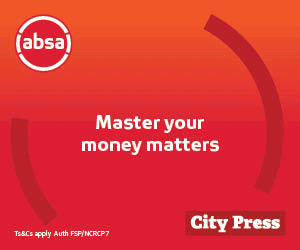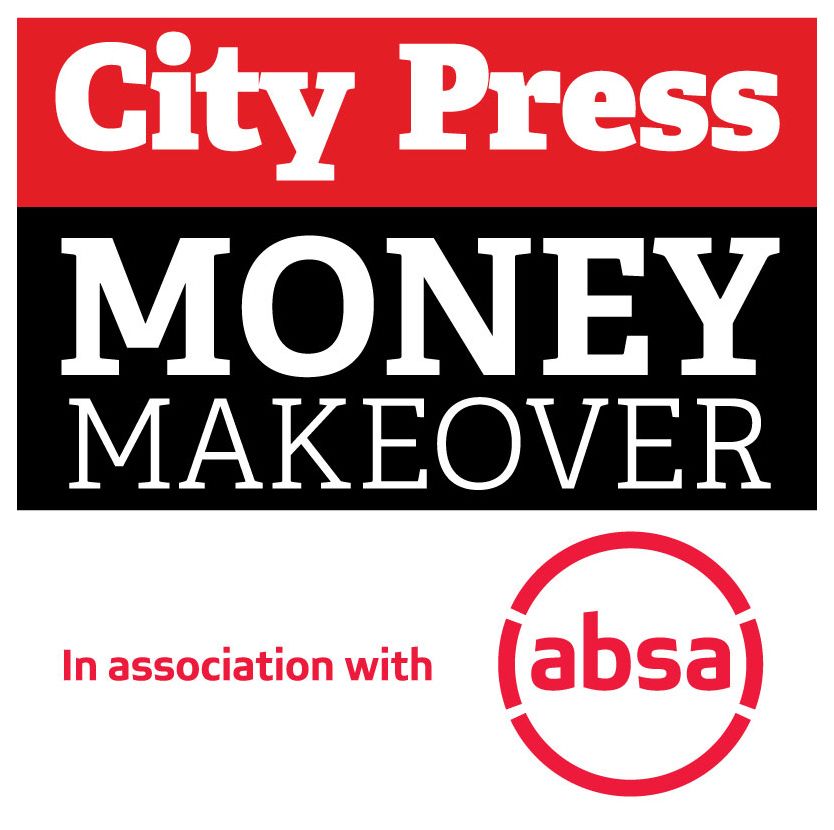Funding your start-up
Why your start-up idea doesn’t begin with money, but, rather, with business skills.
Follow six ordinary South Africans as they take up the Absa/City Press Money Makeover Challenge and undergo a money makeover boot camp over six months. Each candidate has been allocated their own Absa financial adviser. The candidates are required to complete certain financial tasks and stick to the budgets set out for them. Personal finance expert Maya Fisher-French shares their stories.
When Sello entered the Money Makeover Challenge, he was establishing a start-up business to manufacture eco-friendly straws for restaurants and retailers. He had taken out personal loans to purchase manufacturing equipment to produce the prototype.
Like so many start-up entrepreneurs, Sello faces a catch-22. Absa has a working capital funding option for black-owned small businesses via their Enterprise Development Funding, with no requirement for collateral, but they base their loan on existing contracts, purchase orders or a valid letter of intent from buyers of the product.
The Industrial Development Corporation requires a prototype, letters of intent from prospective clients and a business plan before they will consider funding.
While Sello has approached retailers including Shoprite/Checkers and Famous Brands, which have expressed interest, they want to see the prototype before making any business decision.
This means Sello must manufacture his first prototype before he can obtain a commercial contract and funding. While an entrepreneur may have a great idea, no one is going to fund an idea – they need something concrete, they need a proof of concept.
Entrepreneurs need to be prepared to put in some of their own finance or have “skin in the game”. Sello used personal loans to purchase the machinery, which has cost R80 000.
Using a personal loan to invest in a start-up is not necessarily a bad thing, but it may require adjustments to your personal spending to ensure that you can repay the loan. Becoming an entrepreneur is not easy and it does require personal sacrifice.
Get your personal finances in order
Over the last five months, Sello, with the support of his Absa financial adviser Philander Tshivhenga, has worked hard on cutting his expenses and reducing his debts.

ABSA Financial adviser, Philander Tshivhenga
ABSA Financial adviser, Philander Tshivhenga
This has resulted in an improvement in his credit score and, in settling some smaller loans, has provided some cash flow. This has reduced the pressure on his personal finances and places him in a better financial position when it comes to applying for a business loan, which offers better interest rates than a personal loan.
While a funder will require a business plan, they also look at “backing the jockey”. This means they will take the personal finances of the business owner into account.
If the owner is not managing their own finances appropriately, it does not bode well for the way they will manage those of their business. Sello is currently looking at options other than borrowing to fund the final R10 000 that he will need to produce the prototype.
By using his 13th cheque, he expects to be able to finish the prototype by January.
It is also important that Sello keep his personal and business finances separate. Most banks offer cost-effective business banking for start-up businesses and Sello has opened an Absa Business Evolve account. By having a separate bank account, his business will develop its own track record and credit rating – this will be important for future funding.
Acquire business skills
While most entrepreneurs start with looking for funding, according to Norman Venketiah, head of small and medium enterprises (SMEs) in KwaZulu-Natal and Mpumalanga, funding is the last piece of the puzzle when it comes to starting a business. A start-up entrepreneur must first acquire business and financial skills, find a committed buyer or demand for their product and then apply for funding.
The mistake many business owners make when applying for funding is not having a comprehensive business plan. A business plan is not a wish list of what you hope to achieve – it must have hard figures and facts.
This includes a proper SWOT analysis – of strengths, weaknesses, opportunities and threats – understanding the market and competitors as well as a thorough financial analysis of the costs, breakeven point and potential profits. A business plan is important not only to acquire funding, but to inform the entrepreneur whether the business is feasible before they commit funds.
“A business plan must speak for you if you are not in the room,” explains Sello’s Absa business banker Keletso Sebolai.
This is an area that many would-be entrepreneurs struggle with and it is important for them to work with someone who can assist them in acquiring those skills.
Absa partners with various service providers to assist with the non-financial aspects of their business. Sello is working with Precious Mvulane of GAD Consulting Services to put together a business plan, develop his business skills and formulate a strategy for his business. Entrepreneurs can also approach the Small Enterprise Development Agency for training and assistance with business plans.
The next step is access to markets. As part of its Enterprise and Supplier Development (ESD) Programme, Absa partners with blue chip companies that allocate a percentage of their profits to assist start-up businesses. Once Sello’s business plan and prototype are ready, he will be able to pitch his idea to Absa’s partners. Once he has secured a contract, he will qualify for the funding of his working capital.
Last month, Sello attended the Absa Manufacturing Conference at Sandton Convention Centre. He learnt about Absa’s ESD Programme, and it was an opportunity to see products from companies that specialise in machinery equipment.
“It’s good to stay updated about the latest technology solutions out there,” says Sello.
Starting your own business, especially in the manufacturing industry is not an easy path but there are many programmes out there to assist you. It is important to understand the process and why you first need to invest in your own skills before applying for funding. You must put the work in and be prepared to make the sacrifices.
“This is a journey, it can be painful and long, but this is how you make sure your business idea has longevity and that it becomes successful,” says Venketiah.
For Sello, spending the time getting his own finances in order has been invaluable.
“I know this is going to sound strange from someone who badly wants to start his business, but I am glad my business had not started before I paid attention to the importance of acquiring skills to manage money. The Money Makeover Challenge has helped me do that. It would be sad for a starting entrepreneur to achieve success but commit money mistakes afterwards. Such people fall along the way and never recover. Any person who aspires to start a successful business must be financially disciplined in their personal capacity first, or else they will mismanage the little money their business will make,” says Sello.

How the enterprise development programme works
Absa collaborates with its corporate clients to create a supportive ecosystem in which unfunded and underfunded SMEs are introduced to the formal banking sector, where they receive significant funding amounts and business development support.
The collaboration takes the form of an Enterprise and Supplier Development Programme set up by Absa with the corporate client, which brings together three parties into a supportive ecosystem:
1The corporate will identify SMEs it wishes to support with funding and assists to provide income learning opportunities for these SMEs in the form of supply or distribution contracts, or assistance with setting up businesses in the communities in which the corporate operates.
2Absa acts as an agent on behalf of the corporate to manage the administration and disbursement of this impact finance to qualifying beneficiaries.
3SMEs gain access to non-traditional and inclusive financing managed and administered by the bank in the form of hybrid term loans.
4SMEs develop a credit profile during the period of the impact finance and, over time, can qualify for credit from Absa on commercial terms.
Corporate Funds Management is an end-to-end solution that includes SME onboarding into the bank, credit assessment, loan payout and repayments management, and post-loan monitoring.
Financing is flexible and can be structured as soft loans or grants, or a corporate can provide a financial guarantee.
A blended loan can also be structured where the soft loan from the corporate is augmented with an affordably priced loan from Absa.
Find out more about the contestants and their advisers here:
If you really want to get your finances in order, you have to start tracking your spending. If you cannot commit to that, it is unlikely you will be able to reach your goals.
City Press will follow the candidates’ progress on the first and third week of each month, as well as online on the Money Makeover page:
Follow the journey – and join in – @CPMoneyMakeover and #CPMoneyMakeover on Facebook and Twitter
Absa Enterprise Development assists SMEs with access to business development support, markets access and access to funding based on certain criteria’s being met. For further information on Absa Enterprise Development you can email ed@absa.africa
You can follow the story on social media #CPMoneyMakeover
Subscribe below for the Money Makeover Newsletter










